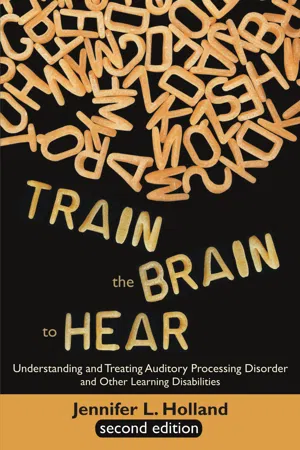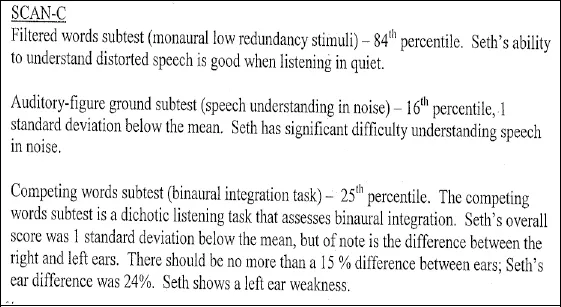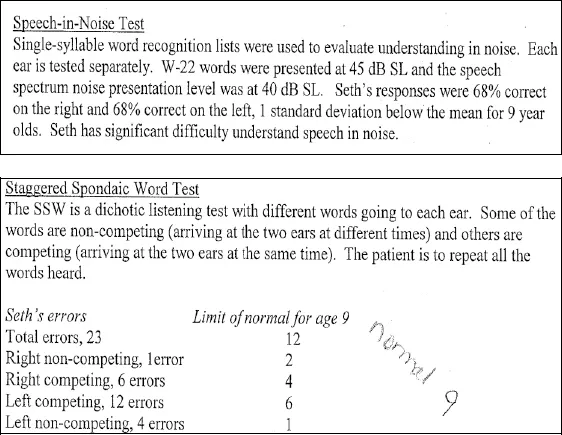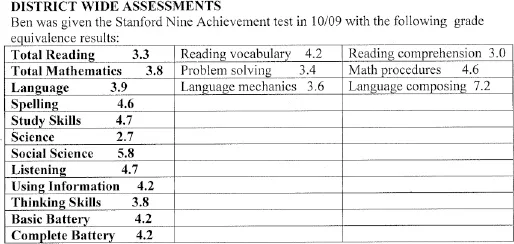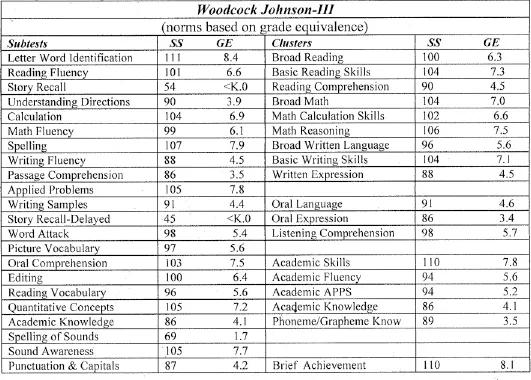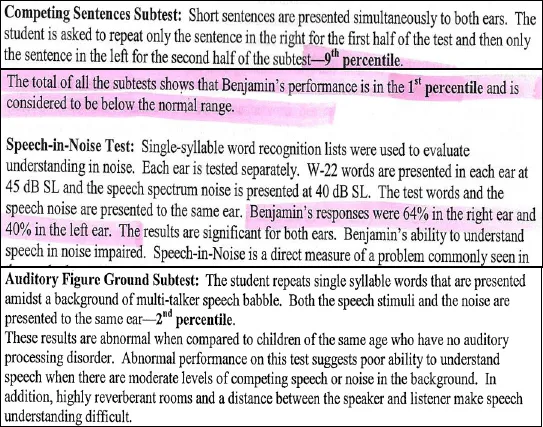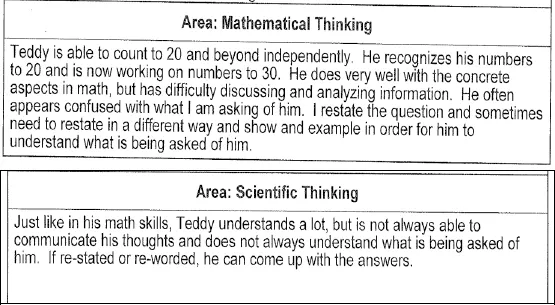![]()
Chapter 1
An Introduction to my Passion
In 1996, I became a mother for the first time. My husband and I had co-created the most wonderful, beautiful, creative, genius who was born to any parents ever. At least, like all first time parents, that is what we thought at the time. He grew and amazed his father and me at every milestone by proving to us just how right we were.
By the time Seth was two, I had a few questions. Like, why did I have to get down on his level every time I spoke to him? Why didn’t he seem to hear me? And if he was supposed to be 50 words, if I counted moo and bbrrrrrmmmm for a truck, he was at 48. Was that ok? We went for a hearing test and were told that his hearing was perfect. We went home somewhat mollified, but still with concerns looming. My husbands’ sister assured me that he hadn’t spoken until late either and neither had her son, who at that time was a very successful college student.
Before we knew it, we had baby number two. Benjamin was a little more demanding, but said his first word at 4 months, literally. His older brother would pop up over the edge of the tub and say ‘boo’ over and over again to make his little brother laugh. Benjamin started repeating the word himself at four months. His grandparents didn’t believe me. So, when we were at the grocery store, Grandma popped up over the edge of the grocery cart and Benjamin promptly said, “BOO!”, and laughed. Our second little amazing, bright, beautiful child had been born into the world.
It was around this time that Seth was severely ill. He developed a pneumonia that moved outside his lungs. He was hospitalized twice and had to have surgery to drain a pocket of infection that developed outside his lungs. He had a chest tube for 3 days and major antibiotics for about 2 months for what was termed atypical pneumococcal pneumonia with pleural empyema that required surgical drainage. Seth was rushed to the ER more than a dozen times in a year with temperatures over 106. The highest recorded was 107.3 and I swear he was over 108 once and I was afraid to measure it. Ten months after chest surgery, Seth had his second surgery to remove his tonsils and adenoids. He was 4 years and 4 months old. We ended up discovering a black mold in our house and the entire house had to be remediated.
Once the mold was removed, all of Seth’s health problems including frequent nosebleeds, fluid in his ears, runny noses and high fevers stopped immediately. We needed to play catch up with his speech, so he attended speech therapy for 4 months. He was sent for another hearing evaluation, because I still had some concerns about his hearing. We were once again told his hearing was fine.
With a background in education, I just knew something was not right. We were referred to a Children’s Hospital in Kansas City for a complete hearing evaluation. We scheduled and went in for that evaluation. Seth was supposed to be in kindergarten, but I was home schooling him, following my instinct that told me something was going on. The audiologist came out and said the same words I had heard twice before, “Good news, Mrs. Holland, his hearing is perfect.” This time I started crying and said, “Then why can’t he hear me?” This audiologist then said, “I’m not done yet.” She sent me on to another facility where Seth was tested for other hearing problems. That was my first introduction to the term auditory processing disorder. Seth heard at about 68% (Figure 1.1) when there was background noise present, which is actually at the low end of the grey area where a diagnosis can be made. However, because of the struggle Seth was exhibiting, and the other test results, he was diagnosed as having auditory processing disorder.
I was given some papers with recommendations like preferential classroom seating and was told that unfortunately there was not much that could be done for him; he was going to have to learn to cope.
We started Seth in 1st grade that next year, giving his teacher the handouts from the audiology department and hoping for the best. By the time Seth was in second grade, he sat in the back corner of the classroom and cried if someone spoke to him. You see, my perfect, beautiful, smart little boy wanted very much to make the teacher happy. So if the teacher said something like, “There are two brown cows and two white cows in the field. How many cows are there all together?” Seth, being the smart little boy that he was and wanting very much too please and having heard the word cow out of all that, raised his little hand and said something like, “I saw cows yesterday that were black with a white stripe in the middle.” Now if that happens one time, it is ignored. But when that happens over and over again to a little guy, the other kids start to laugh. And smart little kids start to feel like maybe they aren’t as smart as they thought they were and their little egos are destroyed and they sit in the back corner of classrooms and try to blend into the woodwork rather than be noticed, spoken to, called on or laughed at. And mommies decide they will not accept that this is as good as it can get for their little ones and start to research ways to help.
Benjamin was doing fine at this point. Benjamin has always had an easy smile and a laid back personality. Benjamin sailed through elementary school with us hearing, at every parent teacher conference, how he was loved by teachers and kids alike. I didn’t catch on to little clues like “He’s a little behind where I would like him to be in reading, so I have been working with him at recess and he is catching up,” that I heard just about every year. His third grade teacher even said, “He does so well in class and then bombs the tests. He is smart and I know he knows the material, so I call him up to the desk and go over it and he knows it, so he is fine.” His fifth grade teacher was hard on him in math and worked with him for weeks during recess to get him where she thought he should be. During all this, Benjamin was still getting good grades and was loved by all. When Benjamin hit middle school and went from one teacher who knew him extremely well to a different teacher every hour, he went from A’s and B’s to D’s and F’s. We began the process of testing him after one teacher noted that she was concerned that he was not performing up to his ability level and seemed easily distracted. He went to an eye doctor, had his hearing checked, had a full physical and even had the lead levels in his blood checked since our home is quite old. Nothing showed up.
Next he began the process of testing through the public schools. Since he was, at that time, attending a private school, he was being tested by people who did not know him. One came out and asked, “Why are we testing him? I am pulling out material I have not used before because his level is so high.” When we were called in to review the results, we were told that Benjamin was not eligible for services because he tested on the 8th grade level overall when he was in 6th grade. It was during this session that my educator brain started kicking in and I noticed a few things. The first was that when he had tested in the fall in a classroom setting at the private school, the results showed him to be on grade equivalent of 3.5. (Figure 1.2)
In the next chart, you can see the results of one test Ben was given in March of 2010. When he had tested at the public school in a room by himself, he tested on the 8th grade level. The silence and lack of distractions made a 5 grade level difference in his scores. Then I began looking at the results of another test in which his grade equivalent was at 8.1 (Figure 1.3) and noticed that some areas like story recall and story recall delayed that were at less than kindergarten level.
As you can see, the areas of understanding directions, comprehension, spelling sounds, and phoneme knowledge showed a significant delay as well, especially when compared to the levels he was performing other tasks. At some point, during that meeting, I reached over and smacked my husband and said, “Oh my God! I know what is wrong with Ben. He has it too.”
We went on to explain what was going on with Seth and, once we got past that he was not eligible for services, were directed to the Missouri School for the Deaf to be tested. The results showed that Ben hears in the first percentile when compared to other kids his age when there is background noise present. Overall, he hears only 64% in the right ear and 40% in the left ear of what is said in a typical classroom situation. (Figure 1.4)
It was during that summer that we realized two things. 1. My husband did not have severe selective hearing or lack the ability to plan ahead. 2. Our youngest, then 4 years old, showed all the signs of having the same disability his brothers and father have. In that summer, it went from being a symptom left over from health issues early in life, to a wiring difference the boys in my house have inherited from their father and something that I had to find a way to help my family with.
We have a daughter. She is a beautiful happy, blonde haired and blue eyed child. Since neither my husband nor I are blonde, we wonder how we were blessed with this fair haired beauty. She is happy and smart, making the A honor role most of the time. She has the same vertical challenges as her mother, but is a very aggressive basketball player. She is playing the flute and softball and loves life, animals, all things girly and hanging out with her friends. I mention her here, because she does not appear to have any difficulties with the way her brain processes information. I would be quite negligent in not mentioning her though since so much of this book is about the rest of the family.
The baby of our family is Teddy. Teddy is not only our sweetheart, but the sweetheart of everyone who meets him. I have been told it is the big brown puppy dog eyes coupled with his freckles and the fact that we call him Teddy that makes him so endearing to others. Many of the signs were there early, like they were with his oldest brother, but let’s face it, he was the 4th. So if he wasn’t talking early, we attributed it to the fact that no one let him have a need, every one of us catered to the little guy. If he said things wrong in a cute way, honestly, it was cute and we let it go. Too often, if he didn’t answer when I called, I sent a sibling to check. If he didn’t answer a question correctly as he ran by, I called him back and told him to listen to Mommy. He answered me, hugged me with those chubby little toddler arms and said, “You are the bestest mommy. I love you” and off he ran.
When he was in pre-k, Teddy had the type of teacher that all of us wish our kids would have for a pre-k teacher. She was kind, loving and supportive and talked very sweetly to the little ones in her care. She spent time getting to know all of them. When it came to parent teacher conferences, she noted that Teddy was one of the first to complete tasks expected of him like identifying all his letters and counting to 100… but that he didn’t seem to grasp concepts the first time they were introduced. He always caught on, just not the first time around. (see Figure 1.5)
When Teddy was in kindergarten I observed a PE class. All the little kindergarteners were lined up on either side of the gym with their backs against the padded sides. The PE teacher said, “On your mark! Get set! Go” and all the little kindergarteners left the wall to run across the gym and then Teddy left the wall. I watched this happen several times and then realized that Teddy couldn’t hear the teacher. He responded to the other kids running and then he followed suit. I had seen the same thing happen a few weeks earlier at the Valentine’s Day party musical chairs game where he was the first one out. He only moved to sit after the other kids did. I don’t think he could hear the music stop. Teddy is now 7, and, before this book is published, he will be tested to see what his level of hearing loss is when there is background noise present and what his other areas of difficulty are.
This school year, we are noticing some areas he is struggling. In math, he does not have his facts memorized. He is also complaining about a couple of the other students in class who, he says won’t be quiet and keep bothering him. At home, Teddy is always asking for clarification when he hears a conversation and usually fills in the wrong words. His standard response is to say what he heard, listen again to what was said and then say, “ooohhhhh”. We are working on the math facts at home on a daily basis and are telling Teddy to think about what he has heard for a minute before he responds to see if he can figure out something that might make sense.
Finally, we come to my husband. We now jokingly say that the wiring difference is all his fault. Charles is a very smart man. I call him the font of worthless knowledge. If he gets little factoids into his brain, they are there for good and...
